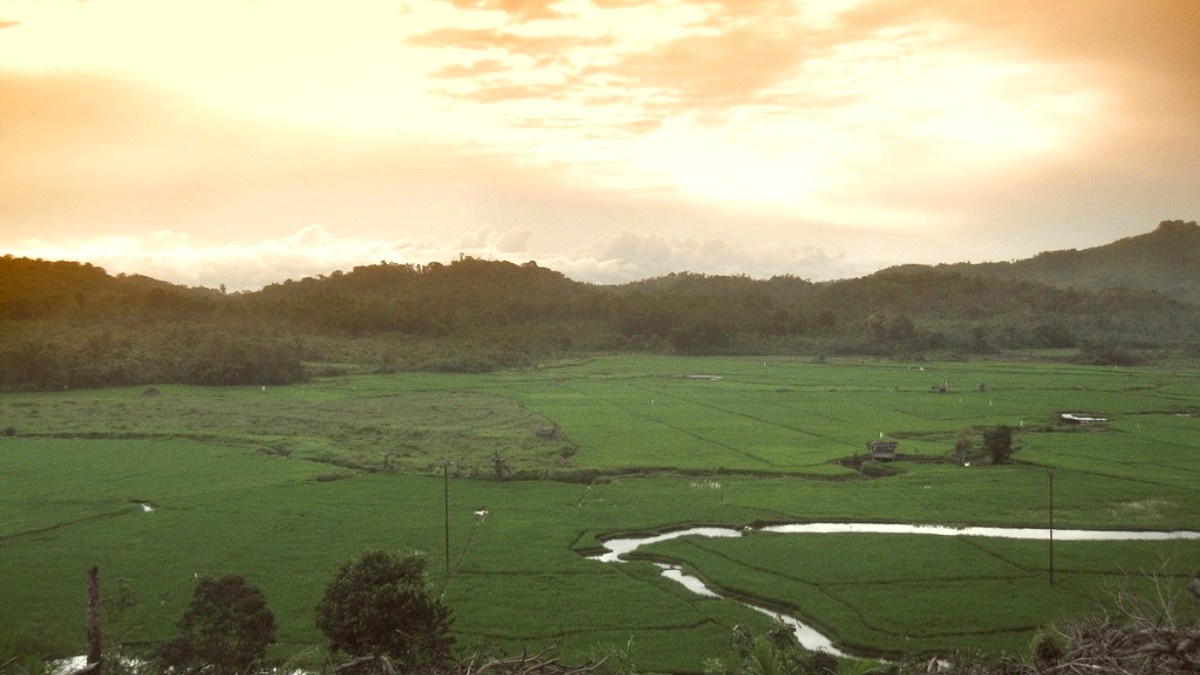
Common ingredients: rice, noodles, fresh seafood, chicken, beef, pork. Tropical fruits: durian, rambutan, mangosteen. Jungle vegetables: ferns, bamboo shoots, tapioca.
Flavor profiles: sambal (chili paste), belacan (shrimp paste), lemongrass, ginger, turmeric, galangal, coconut milk, tamarind. Expect sweet, spicy, sour, and savory combinations.
Known for Sarawak Laksa (rich, spicy noodle soup), Kolo Mee (springy egg noodles), and Hinava (raw fish salad).
Culinary highlights Soto Banjar (flavorful chicken soup) and Nasi Kuning (yellow turmeric rice).
Cuisine similar to Malay, with Middle Eastern and Indian influences. Ambuyat, a starchy sago paste, is a national dish.
Rice vermicelli in a rich, spicy coconut and prawn-based broth. Topped with shredded chicken, prawns, omelet strips. Find it at hawker centers in Kuching.
Springy egg noodles tossed in a savory sauce. Topped with minced pork, char siu, sometimes wontons. Widely available across Sarawak.
Kadazan-Dusun raw fish salad, marinated in lime juice, chilies, ginger, red onions. Find it in Kadazan-Dusun eateries.
Satay, Apam Balik (peanut pancakes), fried noodles, fried rice, Kuih (traditional sweets), Pisang Goreng (fried bananas).
Teh Tarik (pulled tea), Kopi (local coffee), fresh fruit juices. Local beers (Tiger, Anchor) available; alcohol restricted in Brunei.
Found in luxury hotels in major cities (Kota Kinabalu, Kuching, Bandar Seri Begawan, Balikpapan). They offer international cuisine and refined local dishes.
Abundant in cities and towns. They offer a mix of local Malay, Chinese, Indian, and international cuisines for a comfortable meal at reasonable prices.
Hawker centers and street stalls are everywhere. They offer a wide variety of local dishes at very affordable prices.
Larger cities provide various international cuisine options: pizza, Western fast food, Japanese, Korean, Thai, and other Asian restaurants.
Fresh produce, meats, seafood.
Sample local delicacies.
Challenging outside specific international restaurants. Cross-contamination is a risk in local kitchens. Clear communication in Bahasa Melayu/Indonesia helps.
Consider carrying a Translation card detailing restrictions.
Kosher food is extremely rare in Borneo. Travelers with kosher requirements plan to bring their own food or rely on fresh produce.
Offered in cities like Kuching and Kota Kinabalu. Focus on traditional Malay, Dayak, or Kadazan-Dusun cuisine.
Explore hawker centers and markets with a guide, tasting various local dishes.
Part of cultural homestay experiences, authentic meals in a traditional communal setting.
In coastal towns, choose fresh seafood directly from markets and have it cooked to order.
Visit local pepper farms to see the cultivation and processing of this popular spice.
Some eco-tourism initiatives include visits to pineapple plantations, showing where your food originates.
Explore fruit orchards and learn about tropical fruits unique to the region.
When trying street food, look for busy stalls with high turnover. This often means fresh ingredients and good hygiene.